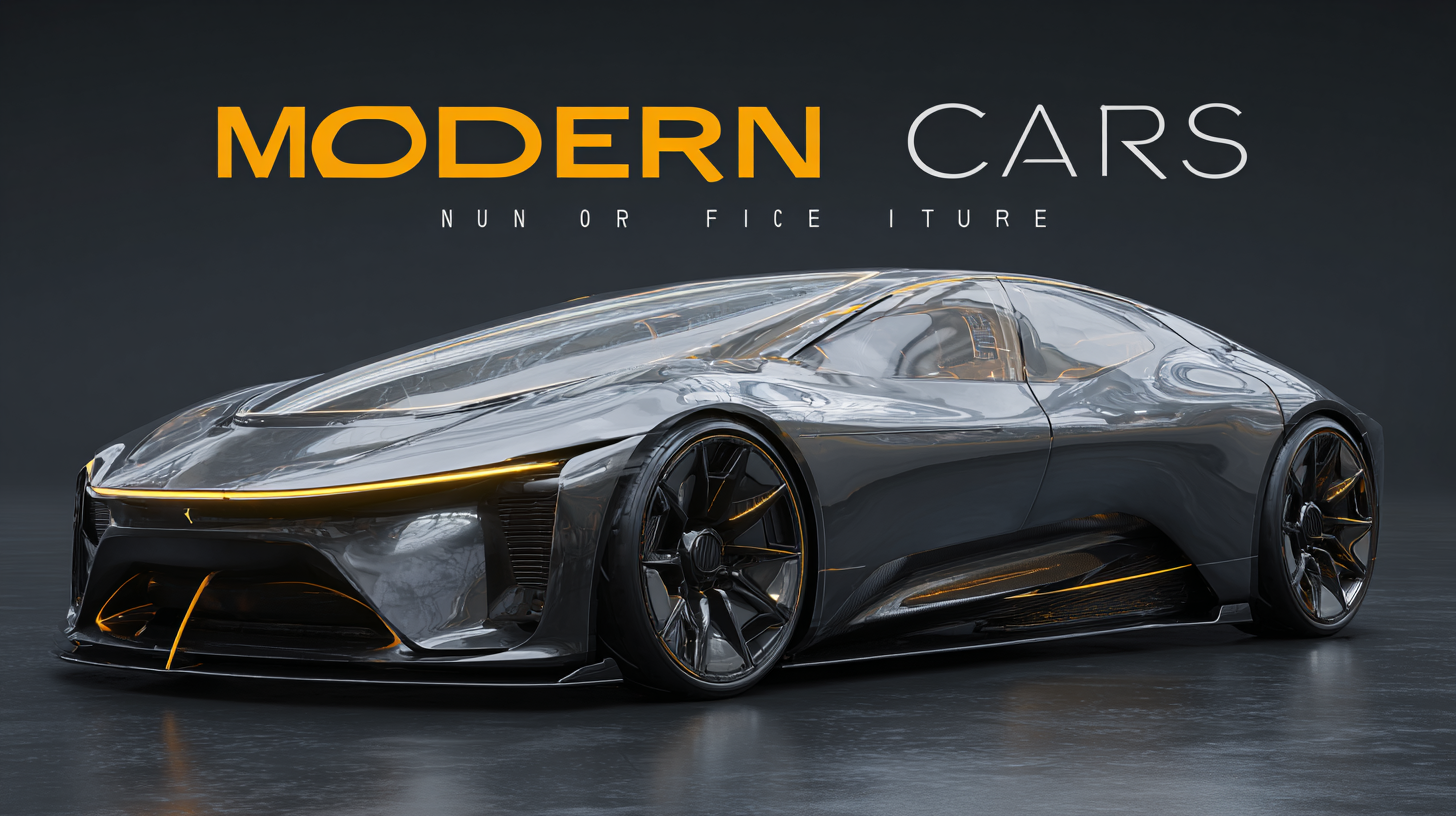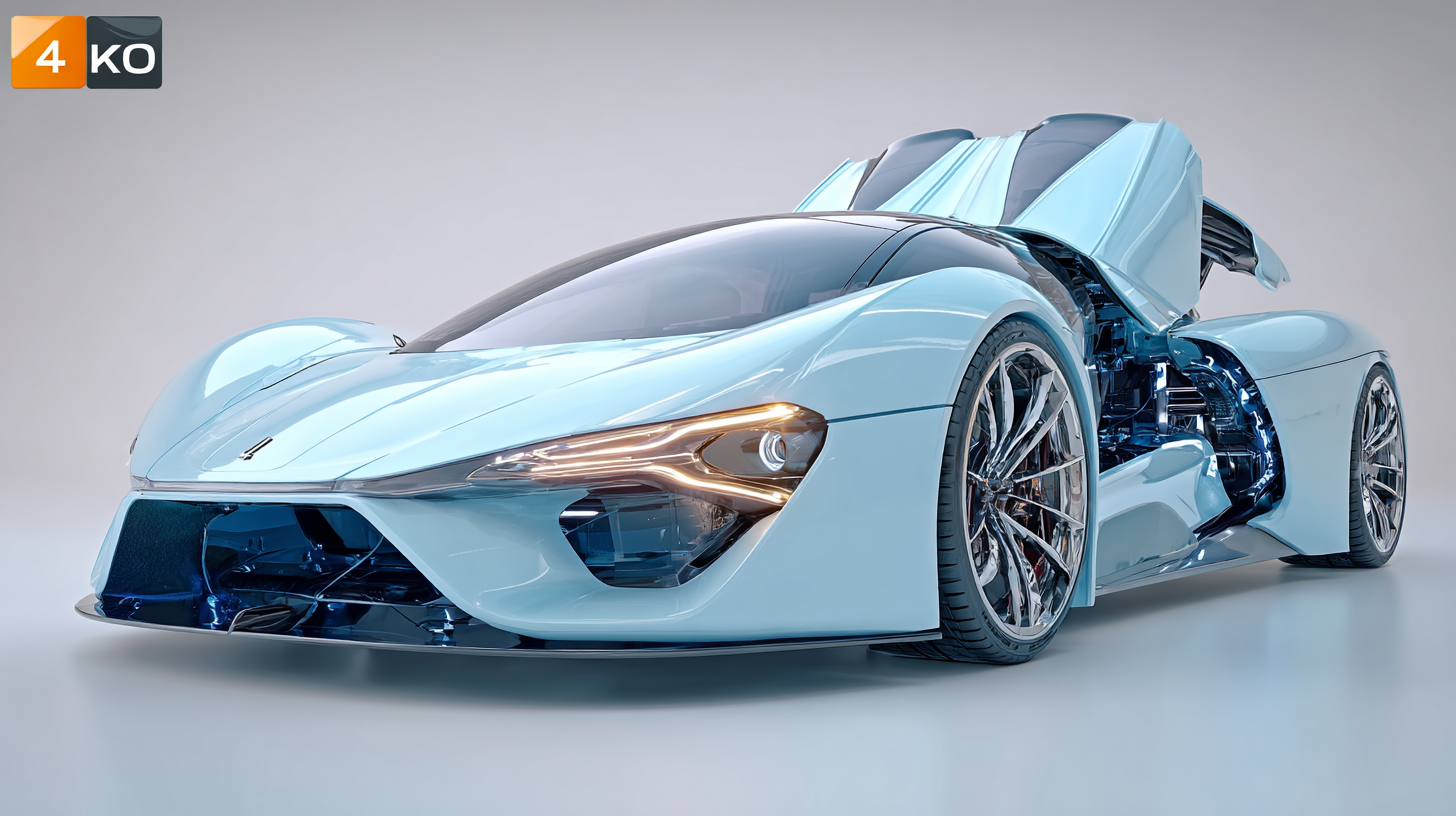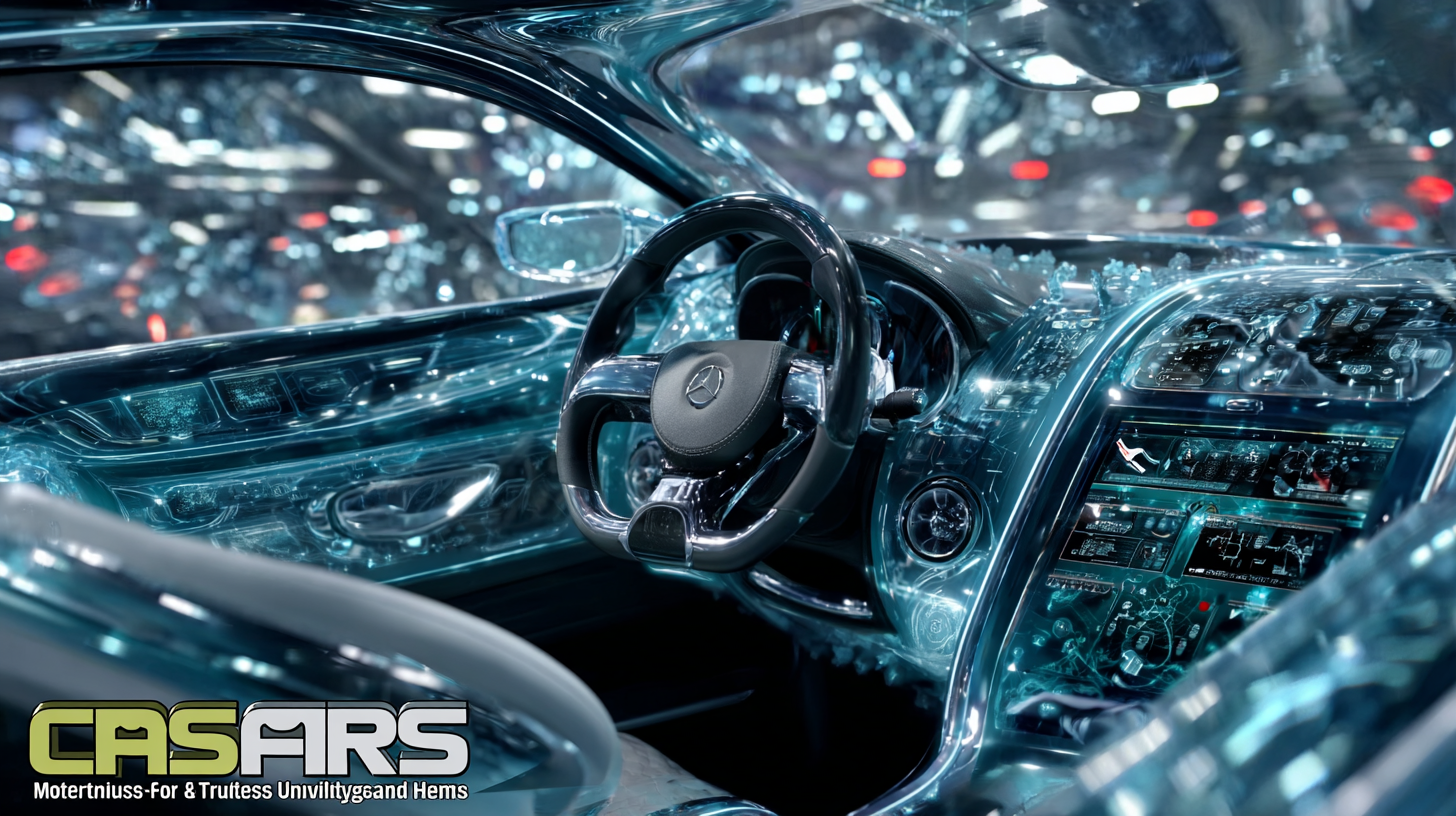Leave Your Message
As we stand on the brink of 2025, the automotive industry is poised for a transformative era defined by cutting-edge technology and evolving consumer preferences. According to the latest Automotive Industry Trends Report, it's projected that the global market for modern cars will reach a staggering $3.5 trillion by 2025, driven largely by advancements in electric vehicles and autonomous driving technologies. In this dynamic landscape, manufacturers are not only focusing on performance and aesthetics but are also integrating sophisticated digital features that enhance connectivity and safety. Moreover, strategies for purchasing modern cars are shifting, with a greater emphasis on sustainability and fuel efficiency, reflecting consumer demand for environmentally responsible options.

This blog aims to unpack the key technology trends shaping the future of modern cars and provide insights into effective buying strategies for the savvy consumer navigating this evolving marketplace.
As we approach 2025, the automotive landscape is set to undergo significant transformations driven by rapid technological advancements. The evolution of automotive technology promises to enhance the driving experience while prioritizing safety and sustainability. Expect to see significant strides in electric vehicle (EV) technology, with more manufacturers committing to producing models that offer longer ranges and faster charging capabilities. Innovations in battery technology, such as solid-state batteries, are on the horizon, potentially revolutionizing how we think about energy storage in vehicles.
In addition to electrification, the integration of artificial intelligence (AI) and advanced driver-assistance systems (ADAS) will take center stage. These technologies will facilitate improvements in autonomous driving capabilities, offering enhanced navigation, safety features, and personalized in-car experiences. As we look towards 2025, connectivity will also play a crucial role, with vehicles becoming increasingly integrated with smart city infrastructure and the Internet of Things (IoT), allowing for seamless communication between cars and their environments. This convergence of technology not only redefines our expectations of what modern cars can do but also shapes the way we approach purchasing decisions in this dynamic market.
This bar chart illustrates the anticipated advancements in various automotive technology categories by 2025, highlighting the key areas of growth and investment. The data reflects projections for electric vehicles, autonomous driving capabilities, and connected car technologies.
As we look towards 2025, the automotive landscape is shifting rapidly, driven by advancements in technology and evolving consumer preferences. Key features are emerging that will define the best modern cars of this era. For instance, electric vehicle (EV) technology is at the forefront, with an emphasis on enhanced battery life and faster charging capabilities. Buyers can expect significant improvements in range, making EVs a more viable choice for everyday use.
Additionally, advanced driver-assistance systems (ADAS) are becoming more sophisticated, paving the way for greater automation in vehicles. Features like adaptive cruise control, lane-keeping assistance, and even semi-autonomous driving functionalities will be commonplace. This shift is not just a luxury but a safety necessity, giving drivers more peace of mind while on the road.
Tip: When considering a purchase, prioritize models that offer the latest in safety technology and EV options, as these will not only enhance your driving experience but may also provide long-term cost savings.
Moreover, connectivity and in-car technology are set to be integral in modern vehicles. Expect to see cars equipped with advanced infotainment systems, seamless smartphone integration, and over-the-air updates that keep your vehicle's technology up to date.
Tip: Always test the tech features during your test drive to ensure they meet your expectations and enhance your daily driving experience.
As we gear up for 2025, consumer preferences are increasingly shaping the landscape of the automotive market. According to the latest report from J.D. Power, over 60% of potential car buyers are prioritizing advanced technology features such as integrated AI systems and enhanced connectivity options. This remarkable shift reflects a growing demand for vehicles that not only provide mobility but also seamlessly integrate into users' digital lives. With an emphasis on smart features, the trend indicates that automakers will need to prioritize tech innovation alongside traditional performance metrics.

Furthermore, a study by Deloitte reveals that sustainability is becoming a driving factor in consumer decision-making, with 55% of respondents stating that they are more likely to purchase an electric vehicle (EV) if it comes from a brand that demonstrates a commitment to environmental responsibility. As a result, car manufacturers are increasingly focusing their strategies on developing eco-friendly models and expanding their electric offerings to satisfy the evolving preferences of their customer base. This shift not only alters the types of vehicles being marketed but also influences pricing and financing options tailored to attract eco-conscious consumers.
As we approach 2025, the automotive landscape is undergoing a seismic shift, driven primarily by sustainability and the rise of electric vehicles (EVs). Consumers today are more environmentally conscious than ever, prompting automakers to invest heavily in green technologies. Electric vehicles, once a niche market, are now at the forefront of industry innovation, with major manufacturers committing to significant rollouts of EV models. This surge reflects a broader shift in consumer preferences towards vehicles that not only reduce carbon footprints but also offer cutting-edge technology, efficiency, and performance.
The transition to electric vehicles goes beyond mere consumer demand; it is intricately linked to global environmental goals. Governments are enacting stringent regulations aimed at reducing greenhouse gas emissions, further encouraging manufacturers to pivot from traditional combustion engines. The development of charging infrastructure is also accelerating, making EVs more accessible to a broader audience. With advancements in battery technology and renewable energy production, the prospect of owning a sustainable vehicle is becoming increasingly appealing to prospective buyers. As we navigate the future of automotive technology, one thing is clear: the rise of electric vehicles is not just a trend; it’s a necessary evolution towards a more sustainable and responsible automotive industry.
| Feature | 2025 Average Specs | Sustainability Focus | Key Technology |
|---|---|---|---|
| Battery Range (miles) | 300 - 400 | High efficiency battery systems | Solid-state batteries |
| Charging Time | 15 - 30 minutes (Fast Charging) | Ultra-fast charging technology | 20kW chargers |
| Autonomous Features | Level 3 automation | Safety and efficiency in transport | AI-driven navigation systems |
| Recycling Rate | 90%+ | Circular economy practices | recycled materials in production |
As we approach 2025, consumers face a rapidly evolving landscape when it comes to financing their next car purchase. Amid economic uncertainties, tariffs on imported vehicles and auto parts have surged, reaching as high as 25% on many models. This shift has created new challenges for car buyers, making it essential to navigate financing options carefully. According to recent surveys, a significant number of U.S. car buyers are reconsidering their budgets due to these increased costs, which may deter some from entering the market.
To smartly approach your next vehicle purchase in this climate, consider exploring used cars. The market is filled with reliable and efficient models that can save buyers considerable amounts while evading the burden of tariffs on new imports. A report noted that used cars remain a savvy financial decision for many, but it's crucial to prioritize reliability and safety.
**Tips for Financing:**
1. **Research Loan Options:** Many lenders are adapting to new market conditions, so shop around for competitive interest rates.
2. **Consider a Larger Down Payment:** This will reduce the overall loan amount and potentially help mitigate the effects of rising prices from tariffs.
3. **Stay Updated on Market Trends:** Be aware of how external economic factors like tariffs can impact vehicle prices; flexibility in your choice of make and model may be beneficial.

